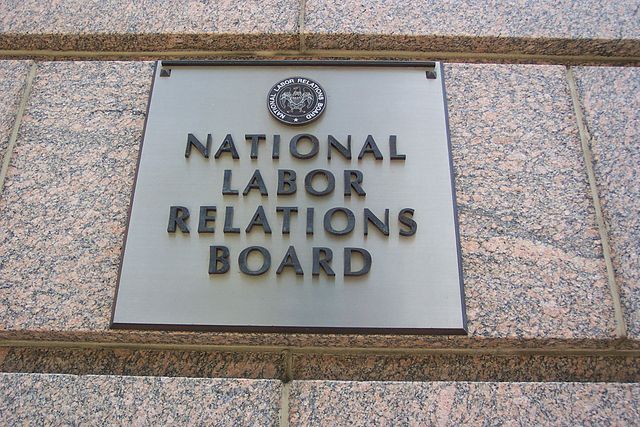 National Labor Relations Board by Geraldshields11 is licensed under Creative Commons Attribution-Share Alike 3.0.
National Labor Relations Board by Geraldshields11 is licensed under Creative Commons Attribution-Share Alike 3.0.
The National Labor Relations Board has announced a proposed rule that would broaden the definition of joint employment, threatening the franchise business model that employs millions of Americans. The Biden Administration should withdraw the proposed rule.
Under current law, employers are responsible for unfair labor practice charges from workers that they directly control. The new rule reverts to the 2015 Browning-Ferris “direct/indirect/reserved” control standard, rewriting labor law in a way that creates uncertainty for franchises.
If the new law is implemented, “a company could be sued for labor law violations and could conceivably be required to recognize and bargain with unionized workers they use through a contracting or staffing business.” The proposed change would “hurt businesses, cause job losses and make it easier for employees who work for a contractor, temp agency or franchise to drag bigger companies into labor disputes.”
Senator Mike Braun (R-IND) believes that “this is the worst possible time for the Biden NLRB to resurrect a job-killing joint employer rule that will threaten hundreds of thousands of small business jobs.” Firms that may have employed staffing organizations in the past may be discouraged from doing so in the future, leading to massive layoffs.
Rather than pull larger organizations into labor negotiations and force more lucrative settlements between unions and firms, the resurrection of this “job-killing joint employer rule” would have the unintended consequence of completely decimating any incentive for larger firms to employ staffing organizations out of fear of being sued for labor law violations. This reduction in the demand for staffing organizations will lead to staffing firms rendering thousands of employees redundant and scaling back their operations.
With regards to the franchising business model, this rule’s ambiguity when defining the prerequisites for “indirect control over workers” will dissuade more cautious brands and chains from engaging in franchising. This reduction in the incentive to employ the franchising business model will lead to a contraction in franchising, an enterprise which employs millions of Americans, which would increase unemployment.
For reference, the franchising business model accounts for 8.2 million jobs in the United States alone and comprises nearly $787.7 billion of the nation’s GDP. These gargantuan contributions are expected to increase by year’s end with an additional 257,000 jobs and $35 billion in value. The enforcement of this new rule would not only imperil the growth of this integral sector of the American economy but also threaten the vitality of the sector’s existing contributions.
If the Biden administration fails to withdraw the proposed rule change, they risk jeopardizing the employment of millions of Americans. Instead of drawing more financially capable firms into labor negotiations and bettering the working conditions of employees, the proposed rule change would reduce the incentive for large firms to contract staffing firms and chains to franchise, thereby leading to greater unemployment and a reduction in the number of smaller firms.

